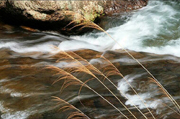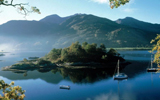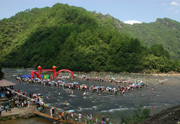Introduction to Baishuiyang Scenic Area
( Chinadaily.com.cn )
Updated: 2011-04-07
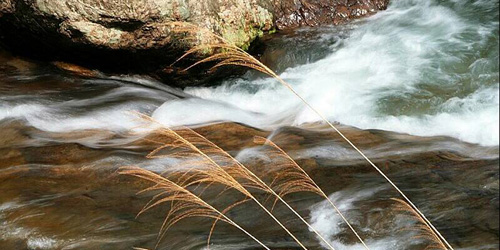
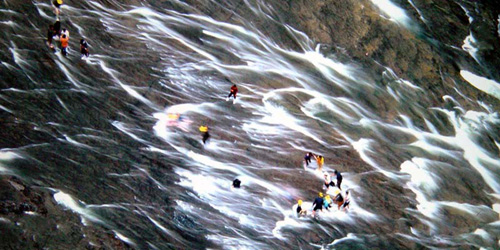
The water surface glistens under the sun, forming a vast expanse of white stars. For this reason, the river is named Baishuiyang , literally the “White Water Ocean”. According to the Chinese Ministry of Construction, the three large shallow pools of Baishuiyang are in fact examples of a rarely seen geological phenomenon. According to preliminary research by geological experts, the riverbeds are made of lava.
Due to crustal movements over time, granite has intruded into some sections of the lava, forming bends in the river flow. After millennia of water flowing over the rocks in the riverbed, today’s unique geological landscape has been formed. The geology and landform of Baishuiyang are not complex, but the reason for the formation of this landform is. Till today, nobody can give a scientific and accurate explanation, leaving Baishuiyang “a myth in the universe” and “a unique scene in the world”.
Baishuiyang is surrounded by many legends full of local characteristics. It is said that once upon a time?a local figure Cheng Huize swallowed a dragon ball by mistake and was transformed into a dragon. Using his powers as a dragon he cleared a?20 hectares?area for Sanfeng Village to use as farmland. Having done this, he decided he wanted to do more for the villagers. As time was pressing, he used his immortal power and swayed his dragon tail to carve a piece of fertile farmland in the high mountains.
This fertile land allowed the people there to live and work in peace and contentment. That is until a villain Guo decided to make the land his own. He colluded with the county magistrate and tried to seize it on the excuse that the mountain land in this area belonged to his family. The Monkey King Sun Wukong, who was living in the Shuilian Cave (a cave curtained with water) downstream happed to hear about his evil intention. One night, Sun Wukong used his magic to?transit the land to the mountains near the Shuilian Cave. A new village was formed there. Local people called it “Yiyang (relocated ocean). Where the village had once stood, only a large clean and smooth rock riverbed was left.

